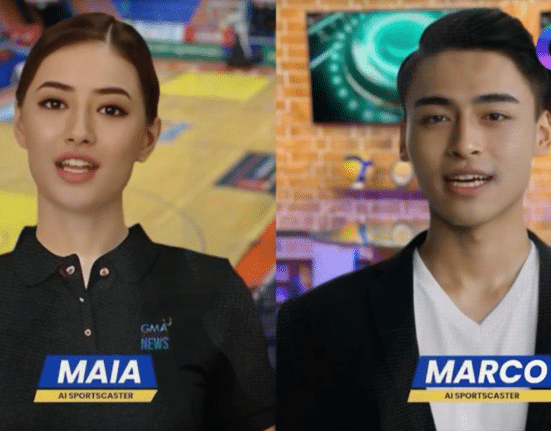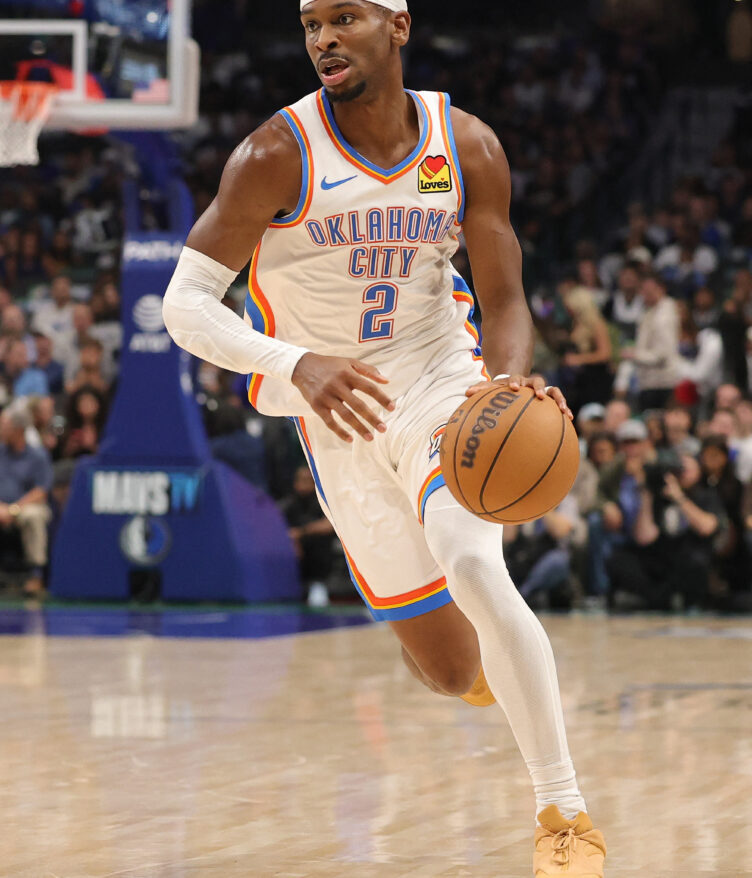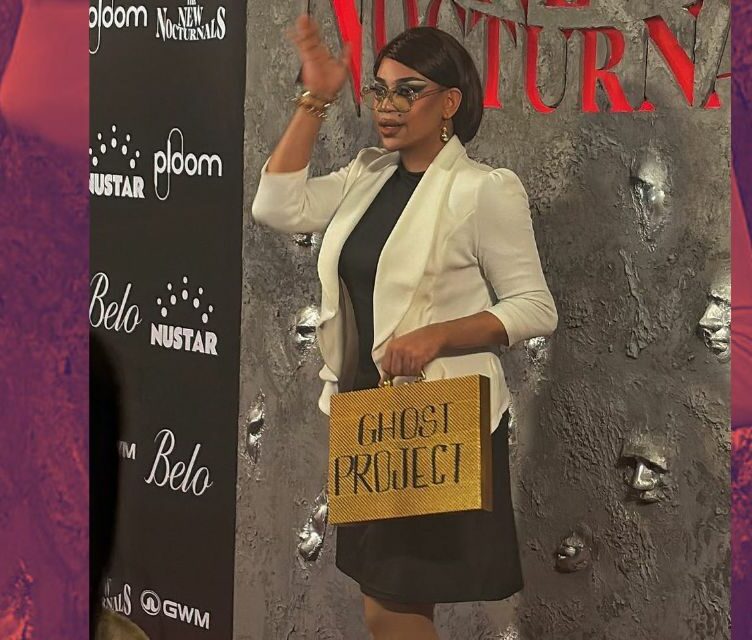THE 99th season of the National Collegiate Athletic Association (NCAA) finally kicked off on Sunday, with host school Jose Rizal University and the three-time defending men’s basketball champion Colegio de San Juan de Letran opening the tournament.
But it was not only the games that became the talk of the town during the opening day at the Mall of Asia Arena.
Sports enthusiasts and audiences witnessed the debut of GMA Network’s Artificial Intelligence (AI)-generated sportscasters, Maia and Marco, during halftime of the JRU Heavy Bombers and Letran Knights’ game.
Sports anchor Martin Javier introduced the country’s first-ever AI sportscasters as additional members of the Kapuso network’s broadcast team for the NCAA Sports coverage, along with its new courtside reporters.
In a recorded video, the two AI sportscasters showed off their abilities in delivering updates both in English and Filipino.
“Parte ito ng mas malaking misyon at mas malawak na paglilingkod ng GMA Integrated News,” Maia said.
The AI sportscasters are set to bring news about NCAA games every Sunday. They will also present updates on local and international sports featuring Filipino athletes, according to GMA Network.
This digital initiative is a collaboration between GMA Integrated News, GMA New Media Inc., and GMA Synergy.
While this is a huge step forward in technology for the network, the initiative did not sit right with many, particularly those planning to become media practitioners.
‘Disappointing, discouraging, frightening’
Several communication students shared with republicasia that they found the network’s digital initiative “disappointing,” “discouraging,” and “frightening.”
Many of them said they are worried that AI would take over the jobs of media practitioners and derail the career they are working hard to achieve in the future.
“As an aspiring journalist. I personally believe that this is a big insult to the field of journalism. Once artificial intelligence takes over, the essence and beauty of journalism will be stripped away by machines,” said 19-year-old freshman student James Dela Cruz.
3rd year broadcasting student Danica Atienza echoed this view and said that she was “dismayed” upon seeing the AI sportscasters. She also questioned the move of the Kapuso network.
“Why would a media company, especially a news company, do something like that? Knowing the fact that it’s so tough to enter the media industry makes me or even my co-broadcasting students lose hope [about having] a place in the industry,” she said.
“It’s frightening that technology could replace a human’s profession,” she added.
Sarah Macaranas, a 3rd-year broadcasting student, is worried about losing job opportunities as well.
“What is the purpose of [a] college degree? Where can we use all the knowledge that we’ve learned all through the years? This kind of initiative will be a big block to all the opportunities that would have or should have been given to those who earn it and who put their hard work into this field,” Macaranas said.
Where’s the heart?
While change is inevitable in the industry with ever-evolving technology, 21-year-old broadcasting student Chrysa Claveria believes that there should be a line drawn between what technology and humans should do.
“They thought that it’s innovative, but it’s actually a blatant disrespect to journalists and especially, to broadcasters,” Claveria said.
The AI figures cannot provide the emotions that human broadcasters do, she said.
”It’s saddening that we have [to] study 4 years [only] to be replaced by an AI. I strongly agree that AI can’t replace human broadcasters because they do not deliver natural emotions, especially in the field of sports,” she said.
Charles Castro, 20, hopes that this digital initiative is just part of a “trial and error” that won’t last long, so that many rising talents in the broadcast industry will be discovered.
“Dramas, emotions, and excitement are the fuel that boost sports. I think they won’t settle on this AI’s performance unless they want to see a fall in their viewership or even ratings,” Castro said.
He also said that he sees no inclusivity in the digital initiative, contrary to what GMA Network claimed.
“If GMA really aims to promote inclusivity, they should use their resources on hiring and fairly compensating media workers, [who are] facing lack of benefits and poor pay,” he said.
‘Presenters’ not ‘journalists’
GMA network defended its move and said that Maia and Marco are just “AI presenters” and “not journalists.”
“[T]hey can never replace our seasoned broadcasters and colleagues who are the lifeblood of our organization. We are now living in the age of AI and other major news organizations worldwide are already using this as a tool to improve their operations,” GMA Network senior vice and head of integrated news, regional TV, and synergy Oliver Victor Amoroso was quoted as saying in a GMA Integrated News report.
“As the leading news organization in the Philippines, we will constantly look for ways to hone our craft, while preserving the value of our human assets and the integrity of our reporting,” he added.
GMA Integrated News also said the two AI sportscasters would “help” courtside reporters by giving updates in sports.
Meet Maia and Marco — the Philippines’ first AI Sportscasters!
— GMA Integrated News (@gmanews) September 24, 2023
Now that #NCAASeason99 has started, they are here to help our courtside reporters by giving updates in sports!
Follow GMA Integrated News, @GMASportsPH , and GMA Synergy on social media for their exclusive reports. pic.twitter.com/CPMFEyyNVJ
How useful was this post?
Click on a star to rate it!
Average rating 0 / 5. Vote count: 0
No votes so far! Be the first to rate this post.
We are sorry that this post was not useful for you!
Let us improve this post!
Tell us how we can improve this post?







